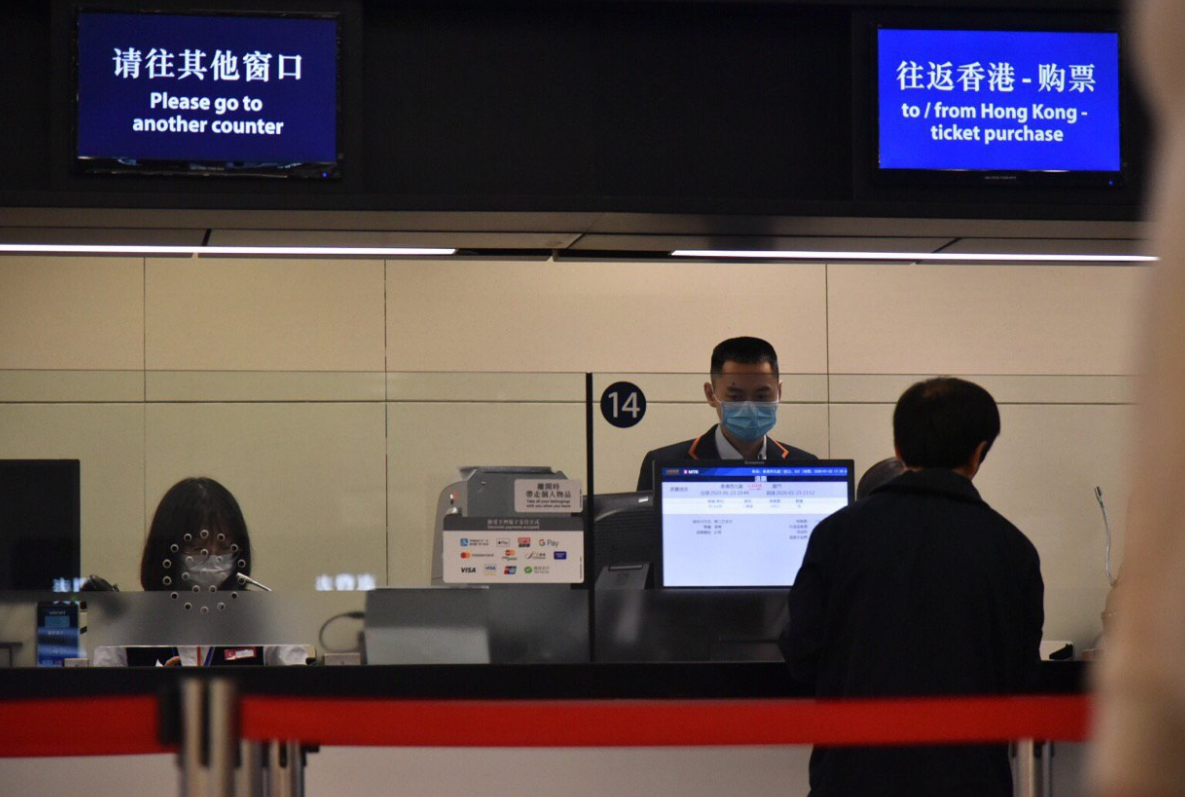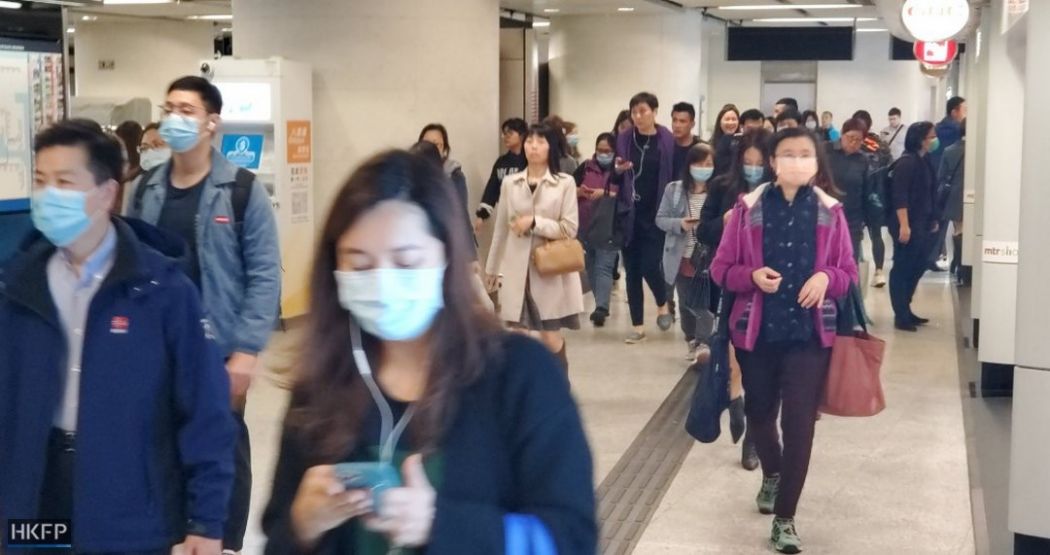Hong Kong on Saturday declared a mystery virus outbreak as an “emergency” — the city’s highest warning tier — as authorities ramped up measures aimed at reducing the risk of further infections spreading.
“Today I declare the lifting of the response level to emergency,” chief executive Carrie Lam told reporters.

Lam held emergency meetings with health officials on Saturday morning after returning from Davos as criticism of her administration’s response had risen in some quarters.
Of the five people who have tested positive for the virus in Hong Kong so far, four arrived via a newly built high-speed train terminal which connects with the mainland.
That has led to calls from some to limit, or even halt, arrivals from the Chinese mainland, which remains the epicentre of the outbreak with 41 people dead so far.
At a press conference on Saturday, Lam said all flights and trains from Wuhan would be cancelled until further notice.

There were no restrictions on transport from other Chinese cities, but all mainland arrivals will now need to sign a health declaration form.
Schools and universities, which are currently on a Lunar New Year break, would remain closed until 17 February, she added.

A string of public events, including a new year gala and next month’s marathon, would also be called off.
The #HongKong Centre for Health Protection shares advice to prevent pneumonia and respiratory tract infection. https://t.co/Zgoq3I2PuP pic.twitter.com/qUty2NCXMT
— Hong Kong Free Press (@HongKongFP) January 25, 2020
“We haven’t seen serious and widespread infections (in Hong Kong), but we are taking this seriously and we hope to be ahead of the epidemic,” Lam said.
”The global spread of the coronavirus: Where is it?”
A SARS-like virus that has claimed 41 lives since emerging in a market in the Chinese city of Wuhan has spread around the world.
Here are the places that have confirmed cases of 2019 Novel Coronavirus:
China
As of Saturday, almost 1,300 people have been infected across China, the bulk of them in and around Wuhan.
Nearly all of those who died were in the Wuhan region, but officials have confirmed two deaths elsewhere.
The city of Macau, a gambling hub hugely popular with mainland tourists, has confirmed two cases.
In Hong Kong, five people are known to have the disease. Three of those cases were confirmed in the 24 hours to Saturday morning.
France
There are three known cases of the coronavirus in France, the first European country to be affected by the outbreak.
One person is sick in Bordeaux and another is ill in Paris. A third person, who is a close relative of one of the other two, has also been confirmed to have the virus.
All three had recently travelled to China and had now been placed in isolation.
Japan
Japan’s health authorities confirmed the country’s third case on Saturday.
One man was hospitalised on January 10, four days after his return from a visit to Wuhan.
Two people from the Chinese city — a man in his 40s and a woman in her 30s — have been treated in hospital for fever.
Australia
Australia on Saturday confirmed its first case of the virus, a man who arrived in Melbourne from China a week ago.
Authorities said they were contacting people who had travelled on the same plane from China and offering advice.
Malaysia
Malaysia confirmed its first three cases on Saturday. All are Chinese nationals on holiday from Wuhan who arrived in the country from Singapore two days earlier.
A 66-year-old woman and two boys, aged two and 11, are in a stable condition and are being kept in an isolation ward at a public hospital, Malaysia’s health minister said.
Nepal
Nepal said a 32-year-old man arriving from Wuhan had the deadly disease.
The patient, who was initially quarantined, recovered and was discharged. The government said that surveillance has been increased at the airport “and suspicious patients entering Nepal are being monitored”.
Singapore
Singapore has announced at least three cases — a 66-year-old man and his 37-year-old son, who arrived in Singapore on Monday from Wuhan, and a 52-year-old Wuhan woman, who arrived in the city-state on Tuesday
South Korea
South Korea confirmed its second case of the virus on Friday.
The health ministry said a South Korean man in his 50s started experiencing symptoms while working in Wuhan on Jan 10. He was tested after his return earlier this week, and the virus was confirmed.
The country reported its first case on January 20 — a 35-year-old woman who flew in from Wuhan.
Both remain in treatment and are in stable conditions.
Taiwan
Taiwan has uncovered three cases so far. It has since advised against travel to Wuhan and Hubei province and on Friday said any arrivals from Wuhan would be rejected by immigration.
All arrivals from the rest of China — including Hong Kong and Macau — must fill out health declaration forms on arrival.
It has also banned the export of face masks for a month to ensure domestic supplies.
Thailand
Thailand has detected five cases so far — four Chinese nationals from Wuhan and a 73-year-old Thai woman who came back from the Chinese city this month.
Two of the Chinese patients were treated, and have since recovered and travelled back to China, the Thai health ministry said this week.
United States
On Tuesday US health officials announced the country’s first case, a man in his 30s living near Seattle. On Friday a second case was announced — a woman in her 60s living in Chicago.
Both were treated and are recovering.
Vietnam
Vietnam confirmed two cases of the virus on Thursday. An infected man from Wuhan travelled to Ho Chi Minh City earlier this month and passed the virus on to his son.
Both are being treated in hospital and are stable, Vietnam health officials said.
Lam currently boasts record low approval ratings after seven months of pro-democracy protests that have left the city ideologically torn apart and helped tip it into recession.
“We must stand united so that we can prevent and control the disease,” she said, in a nod to the political unrest.
